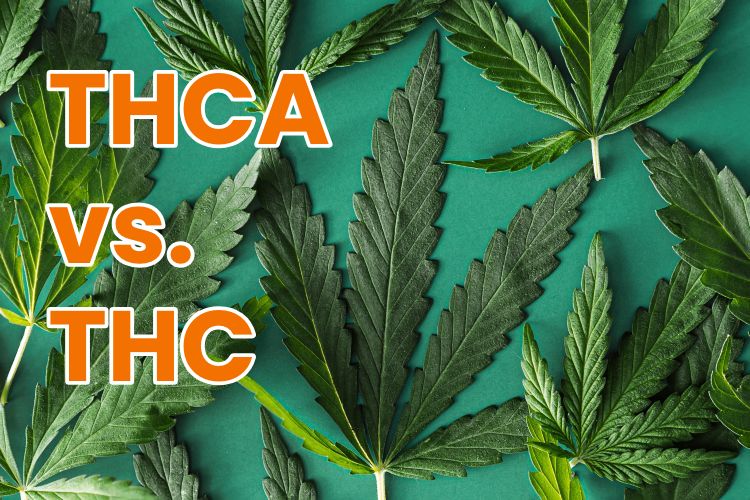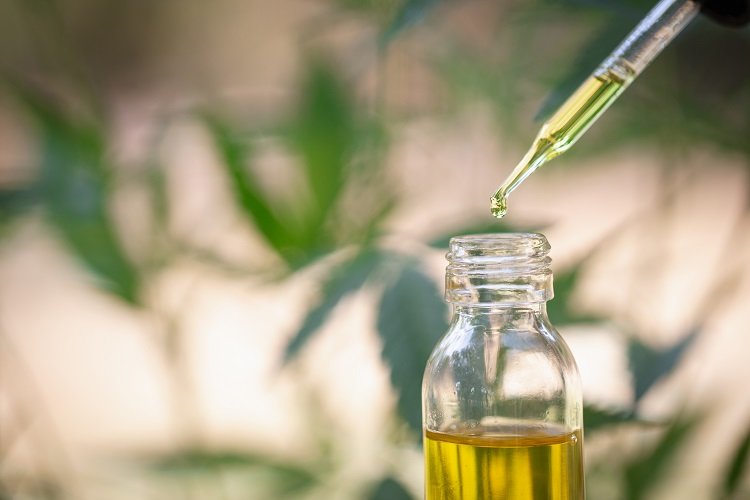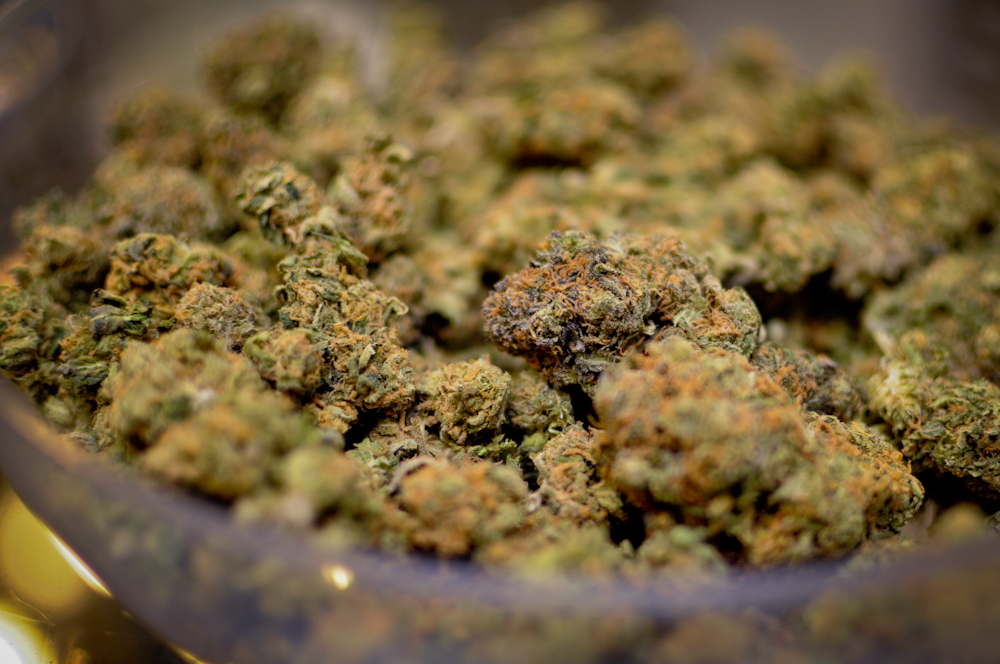CBG vs CBD: The Differences and Similarities Explained

Everyone and their third cousin talk about CBD. CBD, as you may know, is a naturally occurring compound present in the cannabis sativa plant. It’s also known as cannabidiol and has a record of health benefits. Pain relief, a sense of relaxation, and improved sleep are some of these benefits.
While CBD is busy setting track records in the health and wellness industry, another compound called CBG is also catching the interest of people. These two cannabis compounds differ, and in this article, we’ll be discussing CBG vs CBD. You want to know what benefits they offer, how they are different from each other, and possible side effects.
Let’s go.
What’s CBG?
First thing first, let’s give you the basic CBG meaning as a form of introduction. CBG, is the short for cannabigerol. Like CBD, it’s also a naturally occurring compound present in the cannabis plant.
CBG and CBD are both cannabinoids, meaning they are derivative compounds from cannabis. CBG is present in hemp plants in high quantities. But other species of the cannabis plant have only a little CBG. So people refer to it as a minor cannabinoid.
How It Compares to CBD
We will look at how CBG & CBD relates to each other. First, they don’t have any unwanted psychoactive effects that could cause a high or make a person feel intoxicated. Instead, both compounds are good for anxiety due to their mood-boosting properties.
Furthermore, CBG is an interesting cannabinoid. It serves as the primary compound from which you derive other cannabinoids. The acidic breakdown of CBG is what gives rise to the following substances:
CBG, like CBD, is also great in reducing the psychoactive affects you get from THC. So, there is a potential benefit in using these compounds together.
The Key Differences Between CBG and CBD
So what are the primary differences between CBG and CBD? First, these two cannabinoids come from different parts of the cannabis plant. Also, they differ in their usage. Let’s look at other basic CBG vs CBD differences:
Molecular Structure: These two cannabinoids have different chemical arrangements. Their Carbon, Hydrogen, and Oxygen atoms are placed differently, thus resulting in different shapes. Because of that, the way they interact with our body’s endocannabinoid system isn’t similar.
Pharmacology: Psychopharmacology journal published a study on CBG vs CBD and how they interact differently with 5-HT1A serotonin receptors. While CBD acts as an activator of this receptor, CBG blocks it. What this suggests is that CBD has anti-nausea properties, while CBG has opposing effects.
Effect on Stimulating Appetite: Researchers carried out a study on how CBG affects appetite using rat models. They found out it increases food intake. In another study using CBD, there were no changes in eating patterns. But CBD reduced the amount of food consumed.
CBG vs CBD: What Benefits do they Provide?
CBD is widely known to provide an array of benefits to those who consume it. Some of these areas include:
Pain: One of the popular uses of CBD is to provide relief from pain by interacting with the endocannabinoid system in the human body.
Anti-inflammatory: This compound has anti-inflammatory properties alongside providing pain relief. Because of that, CBD is helpful in conditions such as arthritis.
Anxiety and Depression: CBD also offers anti-anxiety and anti-depressant effects.
Neurological Conditions: Another benefit is in treating neurological issues like multiple sclerosis and fibromyalgia.
Cancer: Most cancer patients undergoing chemotherapy experience various symptoms like nausea and pain. CBD helps manage these symptoms.
Other benefits include:
- Treating seizures in rare types of epilepsy.
- Reducing psychoactive effects like hallucinations.
- Managing Post-traumatic stress disorder symptoms.
So, what is CBG good for?
CBG is like a newcomer in the industry. So most studies on CBG are still in clinical trials. However, this compound is showing promising pharmaceutical benefits already.
Some CBG effects which may be beneficial for medical purposes include:
Anti-bacterial Properties: CBG may help fight drug-resisting bacteria due to its anti-bacterial characteristics. For instance, CBG can combat methicillin-resistant Staphylococcus aureus, a bacteria resistant to several antibiotics.
Glaucoma Relief: People have always used THC for treating glaucoma symptoms. Currently, experts believe CBG can also be an alternative treatment for glaucoma.
Ease Inflammatory Bowel Disease (IBD) and Colitis: Researches suggest CBG can provide soothing effects for several IBD symptoms such as abdominal pain, cramps, and nausea. Also, a 2013 study on CBG benefits found it can also ease colitis symptoms.
Anti-inflammatory Properties: CBG could also have anti-inflammatory effects. For instance, when eczema and psoriasis affect the skin, it can help reduce inflammation.
Treating neurological conditions: CBG has neuroprotective properties. It can help people by decreasing inflammation and calming the nervous system.
Both CBG and CBD have shown the ability to trigger death in cancer cell lines. Studies also suggest they help promote healthy gut functions and prevent brain neurons from damage and degradation.
Finally, on their benefits, testimonials from users show CBD and CBG are a powerhouse for anxiety relief.
So, does that mean using both CBG and CBD enhances their effects? We’ll discuss that next.
Do you Get Extra Benefits by Mixing Them?
Researchers and cannabis experts have over the years highlighted the effects of using more than one cannabinoid together at the same time. This concept is called the entourage effect, where cannabinoids work together to increase the health benefits of one another.
This entourage effect is highly evident when consumers use both CBD and THC. THC enhances the anti-inflammatory and analgesic effects of CBD. In turn, CBD reduces its intoxicating properties, resulting in a lesser high.
In the same way, using CBD and CBG together also has extra benefits. For instance, using both can help in situations like nausea and vomiting since they have opposing effects here. Using both will balance each other out. Furthermore, CBG and CBD increase each other’s analgesic, anti-inflammatory, and neuroprotective properties.
Side Effects: CBG vs CBD
Let’s look at CBG vs CBD in terms of side effects. Interestingly, both cannabinoids have the same side effects. Some of the mild reactions users may experience with these compounds are:
- Dry mouth
- Changes in appetite
- Diarrhea
- Fatigue
Furthermore, CBD can interact with several medications. So consult your doctor before using CBD if you’re on medication.
Not much information is available on CBG side effects when it interacts with over-the-counter drugs. You should also speak with your healthcare provider before using any CBG oil product if you’re on any medication.
Final Opinion
Researchers and consumers are starting to pay attention to lesser-known cannabinoids like CBG. Studies show CBG has a similarity to the popular cannabinoid CBD. Both produce analgesic effects. Also, neither of them produces intoxicating effects, so they are legal on a federal level.
Both CBG and CBD have several health benefits, some of which are amplified when you take them together. CBG oil is currently not a mainstream product in the industry. However, you can get this compound from reputable brands that produce high-quality full-spectrum or broad-spectrum CBD oils.









